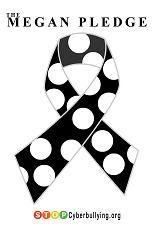"Inclusion is important because children with disabilities gain valuable social and academic skills by interacting with their non-disabled peers."
"It is important to include special education students in the regular education classroom, so they will have non-disabled role models."
"Inclusion helps children with disabilities, because they can interact with regular kids."
It's that little spark of abilism no one seems to notice. The language that hints at something deeper: a sort of slip, if you will. It is always to the advantage of the kids with disabilities to have inclusion programs. We forget there are also advantages to those "non-disabled peers."
A couple years ago now, we had a parent in one of Joey's classrooms complain that one of "those kids" was in their child's classroom. Special ed kids are seen as a burden, a drain on resources and attention for their "regular" and "normal" kid. It is an attitude that must be fought. Until everyone understands the advantage it is for everyone to have inclusion, it will remain a seething issue for the majority of families who do not have kids in special education, who do not understand what special education is or what it is for.
After all, what's in it for
their kid?
I know why it is better for Joey to be around his non-disabled peers. Why is it good for those same peers to be around him?
They learn a lot about caring about others. Joey loves the world, and has genuine compassion for others, expressing that freely. If another kid gets hurt, Joey is right there to comfort them.
They learn about accepting differences. This is a vital social skill that often gets pushed aside, especially in middle school, when kids get that urge to be like everybody else. Teach them early. Teach them well. We are all unique, and that is a
good thing.
They learn a lot about math. That's right. Remember academics? Joey even helps with academics!
I could go on, but the point is this: inclusion is about sharing strengths in order to meet challenges. Everyone has strengths to share. Everyone has challenges to meet. With inclusion, we all get those strengths, and learn to meet those challenges, often in ways no one expected. We strengthen the content of our characters.
Until everyone understands that, inclusion is under threat, because so many do not understand what inclusion is. They don't see how it is to their advantage, so they assume it is not. That assumption is backed up by media articles on inclusion, which stress the advantages of inclusion to people with disabilities, without noting the advantages to
everyone. Inclusion isn't important because children with disabilities gain important social and academic skills. It is important because
everyone gains important social and academic skills.
 *Once a female squirrel breeds with a male, she never breeds again with that male.
*Once a female squirrel breeds with a male, she never breeds again with that male.  *Squirrels sharpen their teeth by chewing on sticks.
*Squirrels sharpen their teeth by chewing on sticks.  *When a squirrel's nest becomes infested with fleas or other parasites, it will abandon it and build a new one.
*When a squirrel's nest becomes infested with fleas or other parasites, it will abandon it and build a new one. 





















